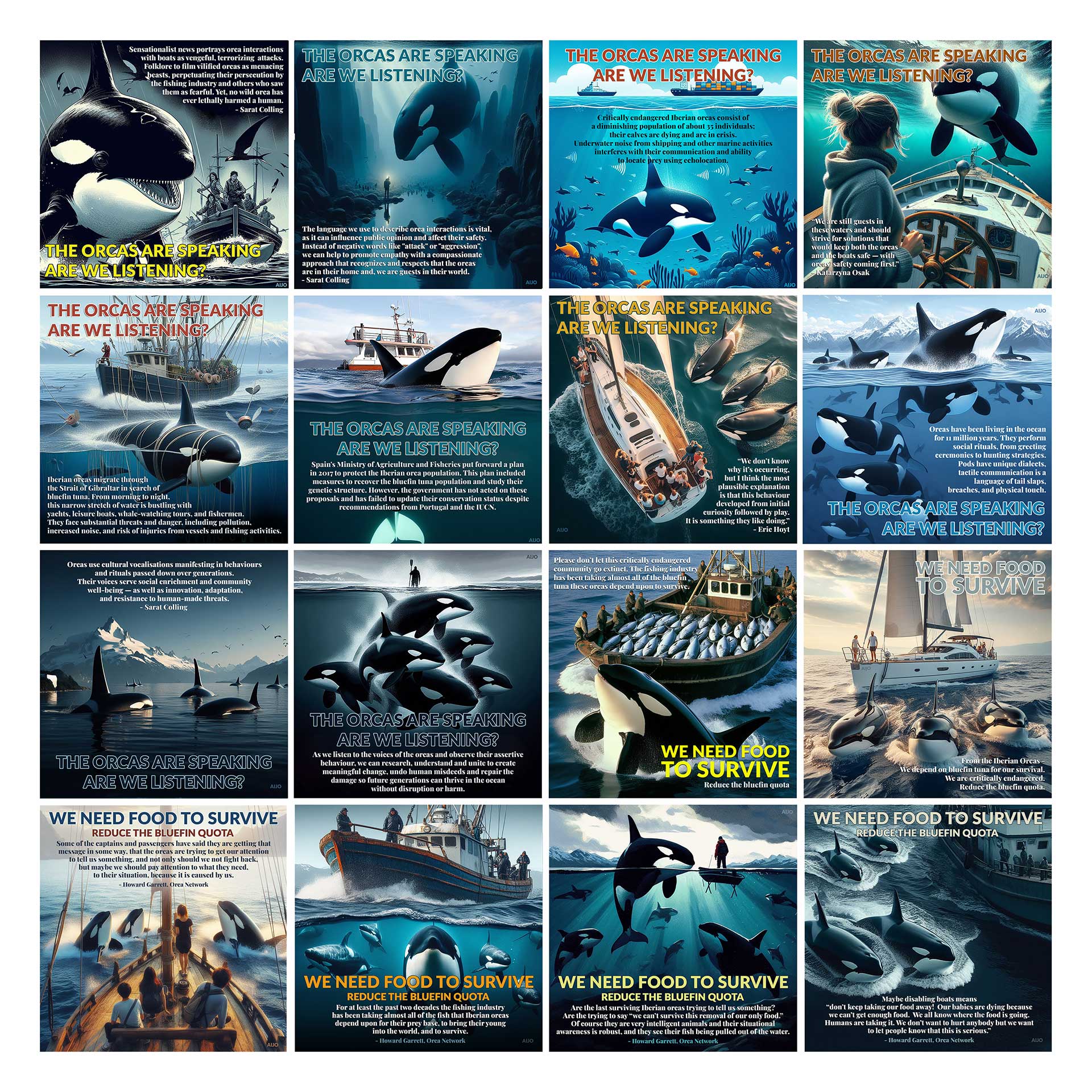“Human-animal interaction occurs when the actions of one affect the other; these interactions can be neutral, beneficial, or detrimental to one another.”
Unique and critically endangered, Iberian orcas are a geographically isolated, genetically distinct subpopulation of fewer than 40 individuals who primarily feed on an endangered prey species, Atlantic bluefin tuna. Human activity in their ocean home impacts their habitat, food, and social life. In 2017, the Spanish government approved a conservation plan. However, most of its mitigation actions are yet to begin.
The Iberian orca subpopulation migrates from the Strait of Gibraltar to the north during the summer, following the Atlantic bluefin tuna. In autumn, they fan out from the north into deep water. During the winter, they return, where they remain until the end of spring, to repeat the cycle. Currently, the orcas show two tuna-feeding strategies: active hunting and depredation from long-line fisheries in the Strait of Gibraltar. Orcas scan the area around the fishing boats until they spot a tuna caught on a line and try to eat the fish before the fisherman can bring it to the surface. Observations of deep lacerations and even amputations suggest a relation to fishery interactions.
In March 2020, some individuals adopted a new behaviour, interacting with sailboats, potentially causing damage, along with interactions with fishing boats, rigid-hulled inflatable boats, and motorboats. Orcas have highly cognitive capabilities and can quickly reproduce behaviour through social learning. This behaviour caught the attention of scientists and the public, who are still trying to understand this unique behaviour. Click-bait news headlines spoke of “attacks” and “revenge”, which are unfounded and are potentially harmful to the animals.
Questions asked include: Why did the behaviour start? What motivates them? Do they view boats as threats or play? Are they teaching their young?
More than 500 incidents have been observed, from non-contact observations to significant interactions, with orcas sinking four boats and damaging around 300 other vessels; even so, severe damage has occurred in only 20% of the interactions.
A matriarch, Gladis Blanca, with fishing line scars, was among the first to engage with boats. At this time, she was the only adult in a group of eight. Now, 15+ individuals participate. Despite being on the edge of collapse, they have made their presence known, inspiring many to protect and conserve them and their environment.
Memes for awareness & education
Reference:
- ‘Are We Listening’ memes based on ideas from Sarat Colling’s article When Orcas Speak: Listen Carefully
- GT Atlantic Orca
- Killer whales of the Strait of Gibraltar, an endangered subpopulation showing a disruptive behavior
- Orcas accused of attacking boats may be ‘following fad’, scientists say
- Opinion by Howard Garrett Iberian orcas and boats.
Credit:
Are We Listening meme inspiration: Sarat Colling.
Fishing memes: Howard Garrett, Orca Network
Memes created with Dalle3 & Photoshop: AIJO – designbyjo.co.uk : Attribution-NonCommercial-NoDerivs 4.0 International
Reduce the Bluefin Quota Concept & Text: Raewyn Fraser





